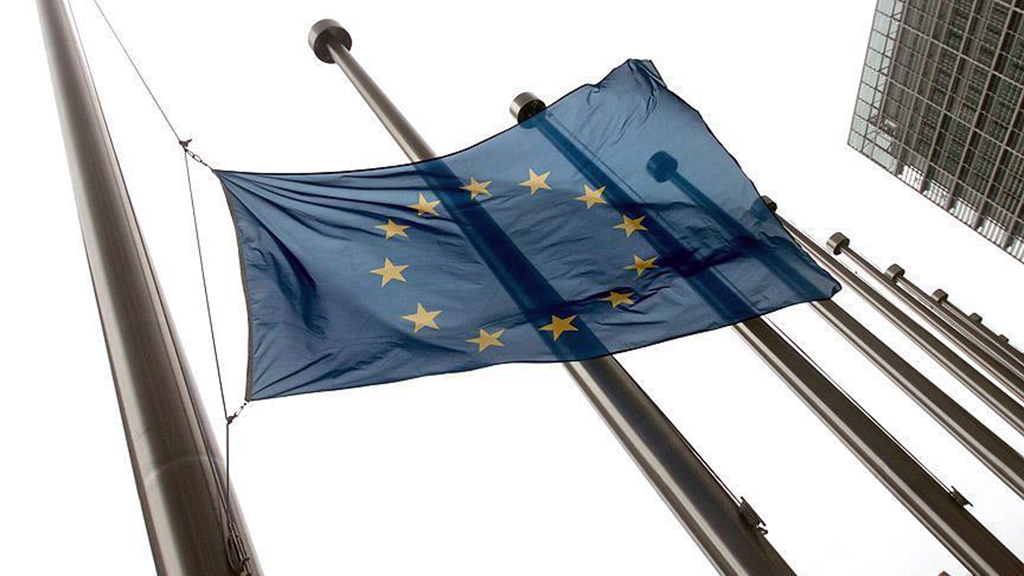
Paradigm shift in Turkey-EU relations
Europe is suffering from domestic challenges, identity problems, politicians trapped in short-term visions and shallow thinking
Share
In the past, some European actors were anti-Turkey, while some others supported it. Those who prioritized rational and strategic thinking had been supporting Turkey and considered Turkish EU membership as one of the main instruments for transforming the organization into a global actor. On the other hand, those who had a civilizational European perspective "otherized" Turkey and strongly opposed its full membership. However, today we have a different picture. The EU governments have been divided into two camps about Turkey-EU relations: All of the governments and political actors are anti-Turkey, however, some of them are blatant while others are disguised.
Turkey-EU relations have almost always been thorny and difficult throughout their history. However, we have been witnessing a paradigm shift in Turkey-EU relations due to recent developments both in the EU and in Turkey. There are two sets of changing conditions that determine this paradigm shift.
The first set of conditions emanate from the EU. The EU institutionalization was at its peak after the collapse of the Cold War system and the EU enlargement toward Eastern Europe. Nevertheless, it faced important challenges stemming from new topics such as defense and foreign policy, and new members. As a result of these developments, the EU has lost its attractiveness for many European states. At last, the British decided to leave the EU. This was the first step back in the EU and most probably this backward tendency will continue. Other member states began to discuss both the future of the EU and their future in the EU.When looked closely, we can see that that there are too many fault lines inside of the EU. The EU faces difficulties in dealing with its domestic problems as well as external challenges. The biggest inner threat to the EU is the rise and normalization of racism, far-right political parties, ultranationalist feelings, xenophobia and Islamophobia. There is an increasingly effective wave of illiberal and anti-globalization actors throughout Europe.
The second inner problem inside of the EU is the shallowness and mediocrity of European politics, that is to say, the new generation of European politicians lack the visionary outlook of the previous generations. They are mostly trapped in conjuncture policies and short-term concerns. That is, they just try to save the day. This new political elite in Europe does not believe in the EU values, and therefore they are hesitant in promoting these values to other countries.
Third, some EU members are reluctant to share the burden of other members. Southern tier EU countries have been experiencing economic problems and struggling against a refugee influx, but the northern tier countries are relatively free of these problems and do not want to import these issues into their domestic politics.
The second set of conditions that has determined the paradigm shift is related with Turkey and its policies. More specifically, Turkey has also been in a process of transformation. Unlike the previous politically dependent and economically vulnerable country, nowadays, Turkey is a politically stronger and economically solid country. In addition to European countries, Turkey has developed a complex network of foreign policy and accordingly improved its relations with Middle Eastern, Asian and African countries. Turkey has normalized relations with its long-time ignored partners and established an Ankara-centered perspective. It has diversified its bilateral relations and redefined its national interests. At this point, European countries were not accustomed to initiating healthy relations with this new Turkey.
The old EU has been trying to continue its hierarchical approach toward Turkey. That is, the EU wants to continue giving instructions to Turkey and to dictate its domestic and foreign policy. With such thinking it becomes clear that the EU failed to accept the new Turkey and it has been following policies that are not only in contradiction with the democratic values that EU "so strongly supports," but directly threaten Turkish national security and interests. Once the biggest and most important motivation of the Turkish democratization process, the EU in recent years began to support anti-democratic actors in Turkey. European countries host members of terrorist groups and provide a safe heaven for coup plotters. European actors have been hesitant in defending democratic institutions against undemocratic forces. EU institutions and members opened their platforms for violent non-state actors and ignored the Turkish warnings and sensitivities. Ironically, European actors still expect from Turkey to take necessary measures in order to protect Europe against detrimental developments such as the refugee problem and international terrorism.
Both the EU and Turkish sides are well aware that the full-membership perspective regarding Turkey-EU relations is lost. After the above mentioned developments, the small chance that used to exist now is totally lost. The two sides need to develop a new type of relationship – a realistic, reciprocal, horizontal and strategic perspective. The EU and Turkey are two interdependent actors and it is impossible for them to neglect one another. The two sides have to redefine their bilateral relations and to prioritize a positive agenda, and most importantly, European countries have to stop instrumentalizing Turkey in their respective domestic politics.
[Daily Sabah, 21 April 2018]
Tags »
Related Articles








